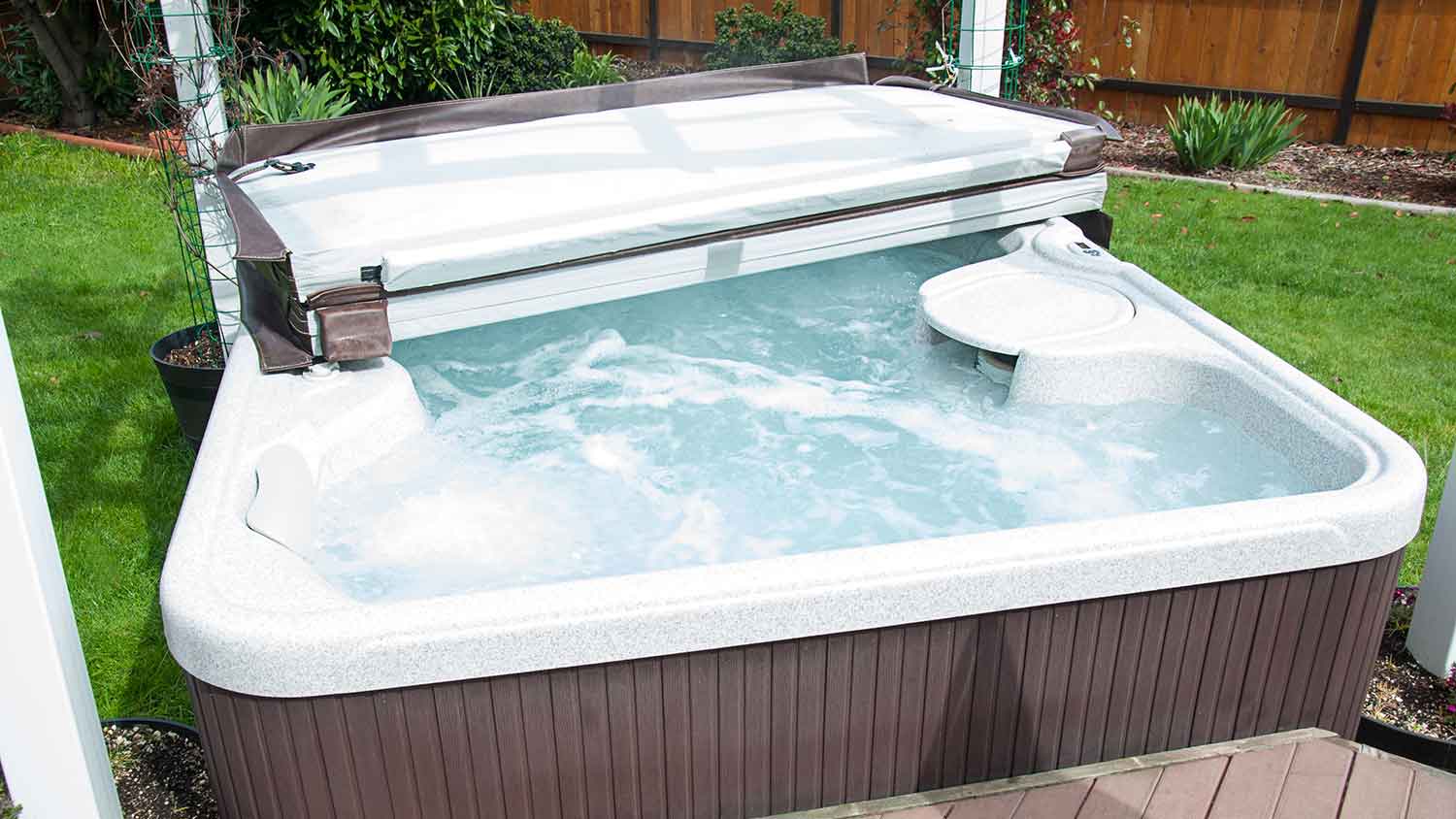
Wondering about hot tub cover costs? Learn what impacts pricing, compare materials, and discover ways to save on your next hot tub cover purchase.
Take the plunge with the right addition for your yard


Swim spas are smaller than pools and have current-creating jets for swimming.
Pools are ideal for active families who like to entertain.
Swim spas cost less to install and maintain than pools.
Swim spas have recently been gaining in popularity as an alternative to traditional pools, but do you know which one is right for you and your home? They’re sized differently and offer different features, and each has its advantages and drawbacks. To help decide which one is a better choice for you, dive in and learn the differences between a swim spa vs. pool.
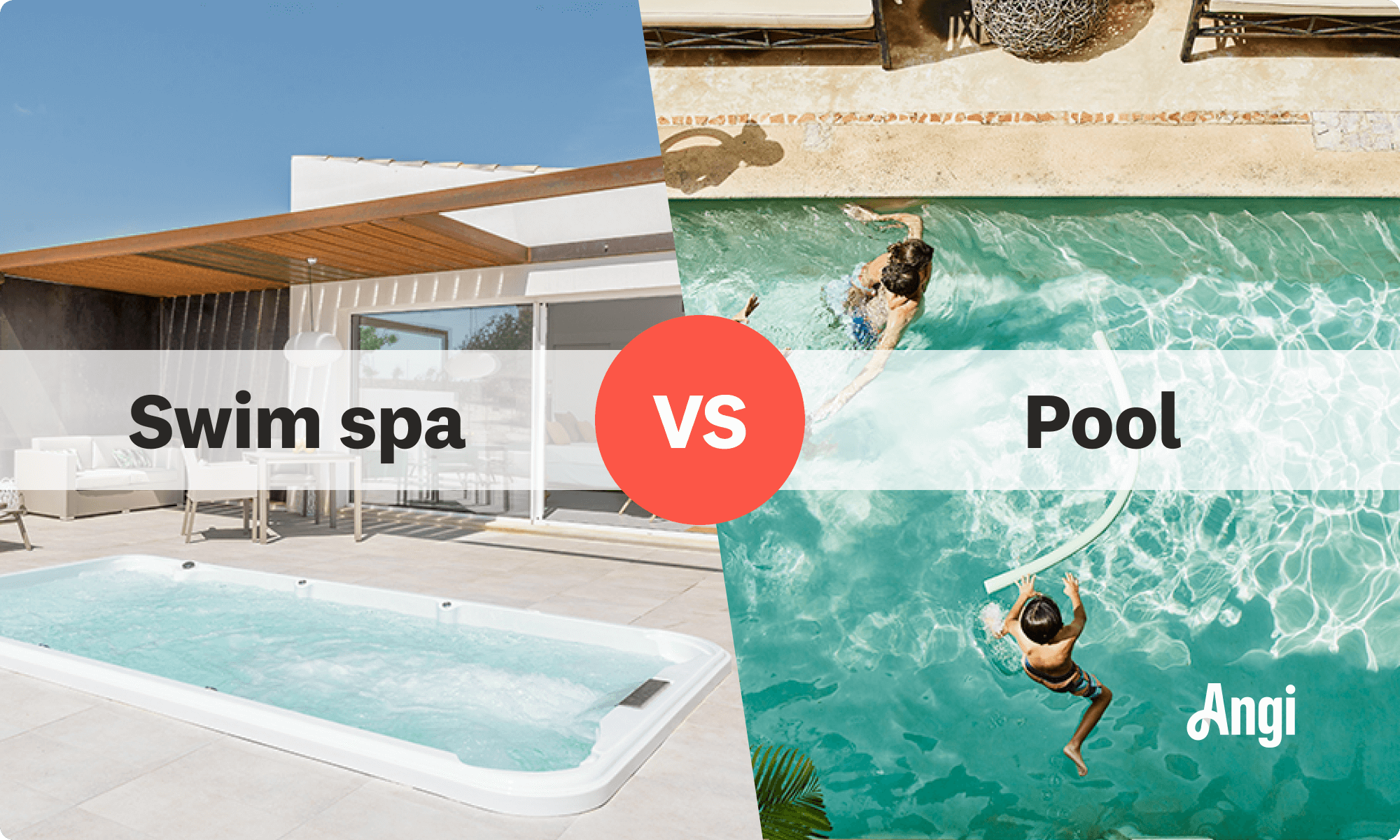
Both swim spas and pools are features you can add to your property for swimming, but they aren’t the same. Traditional pools are large, can be installed either inground or aboveground, and come with a complex filtration system. Swim spas are much smaller, include a more efficient filtration system, and feature jets that create currents to swim against. The currents in a swim spa allow you to swim laps without needing the larger area of a traditional pool, whereas a pool’s bigger size is ideal for sunbathing and other non-swimming water activities like water polo.
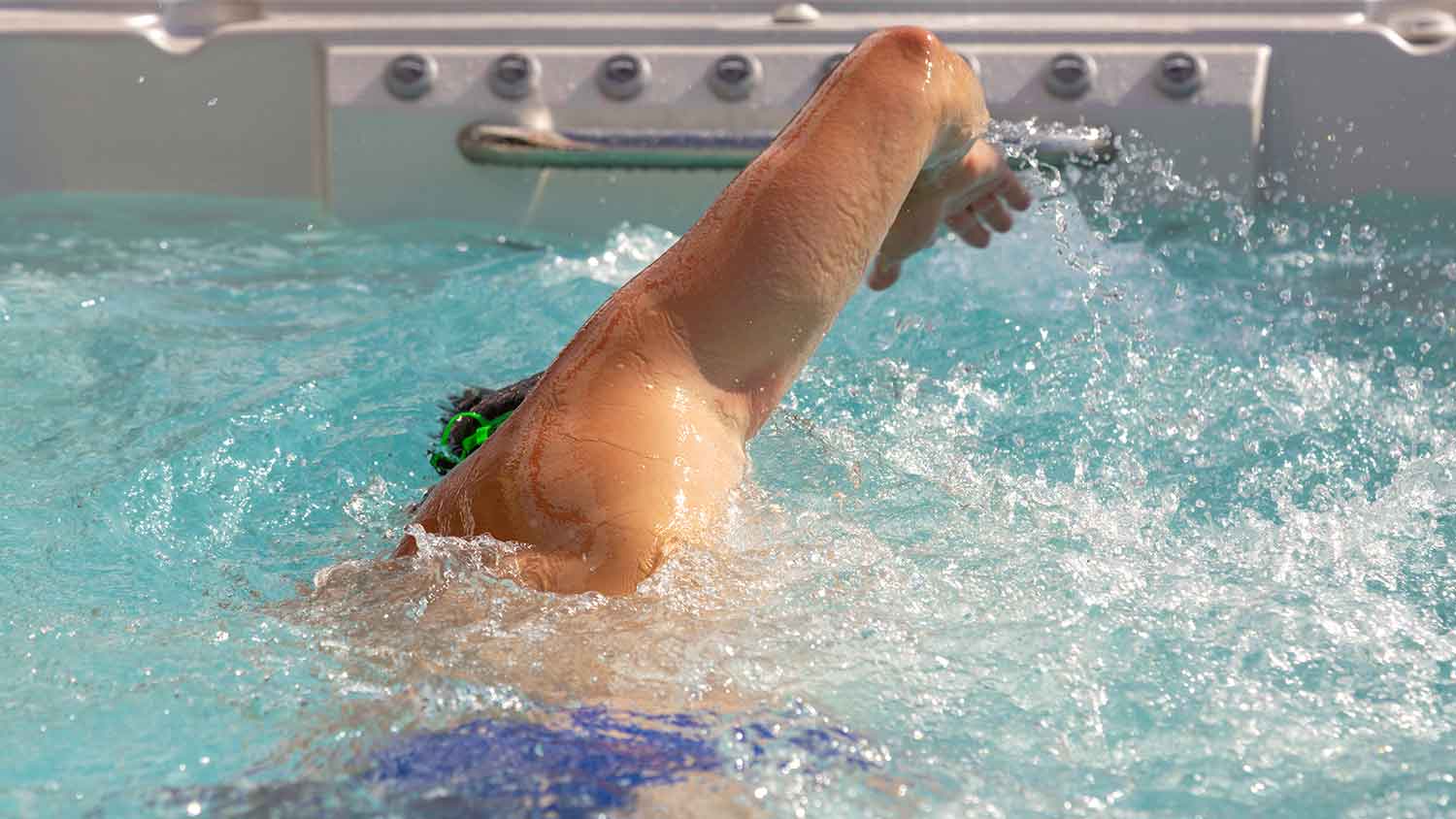
If you aren’t familiar with what a swim spa is, you may think it’s just a small pool or a big hot tub. While it’s true that swim spas and hot tubs have some features in common—as do swim spas and pools—they have a number of significant differences, too.
Swim spas, often called endless pools, are much smaller than traditional pools but larger than hot tubs, usually ranging from 10 to 15 feet long, 5 to 10 feet wide, and 3 to 5 feet deep.
Swim spas include jets that create currents that are typically strong enough to swim against, and do not have a deep end, as is often found in traditional pools. They are also heated to a temperature warmer than a pool but not as warm as a hot tub.
| Pros | Cons |
|---|---|
| Lower cost | Limited design options |
| Minimal maintenance | Not suitable for groups or parties |
| Smaller footprint | High heating costs |
Best for:
Smaller properties
Swimmers looking to get in a workout
Homeowners with a limited budget
The cost of a swim spa is one of its biggest advantages. Not only are they less expensive to install than traditional pools, but swim spa maintenance costs are also much lower. Swim spas are easier to maintain, require fewer chemicals, and have more efficient filtration systems due to their size. They’re ideal for smaller backyards where a pool may not be a feasible option.
Unlike pools, swim spas usually come pre-fabricated and have limited design options, so they aren’t as customizable as pools are. For families who love to host pool parties, a swim spa isn’t a great option, both because of the smaller size as well as the currents, which may be too strong for small children. And while most costs are lower for swim spas, one place you’ll spend more money is for heating. Because they’re kept warmer than pools, heating costs will be higher than a pool, although likely less than a hot tub of comparable size.
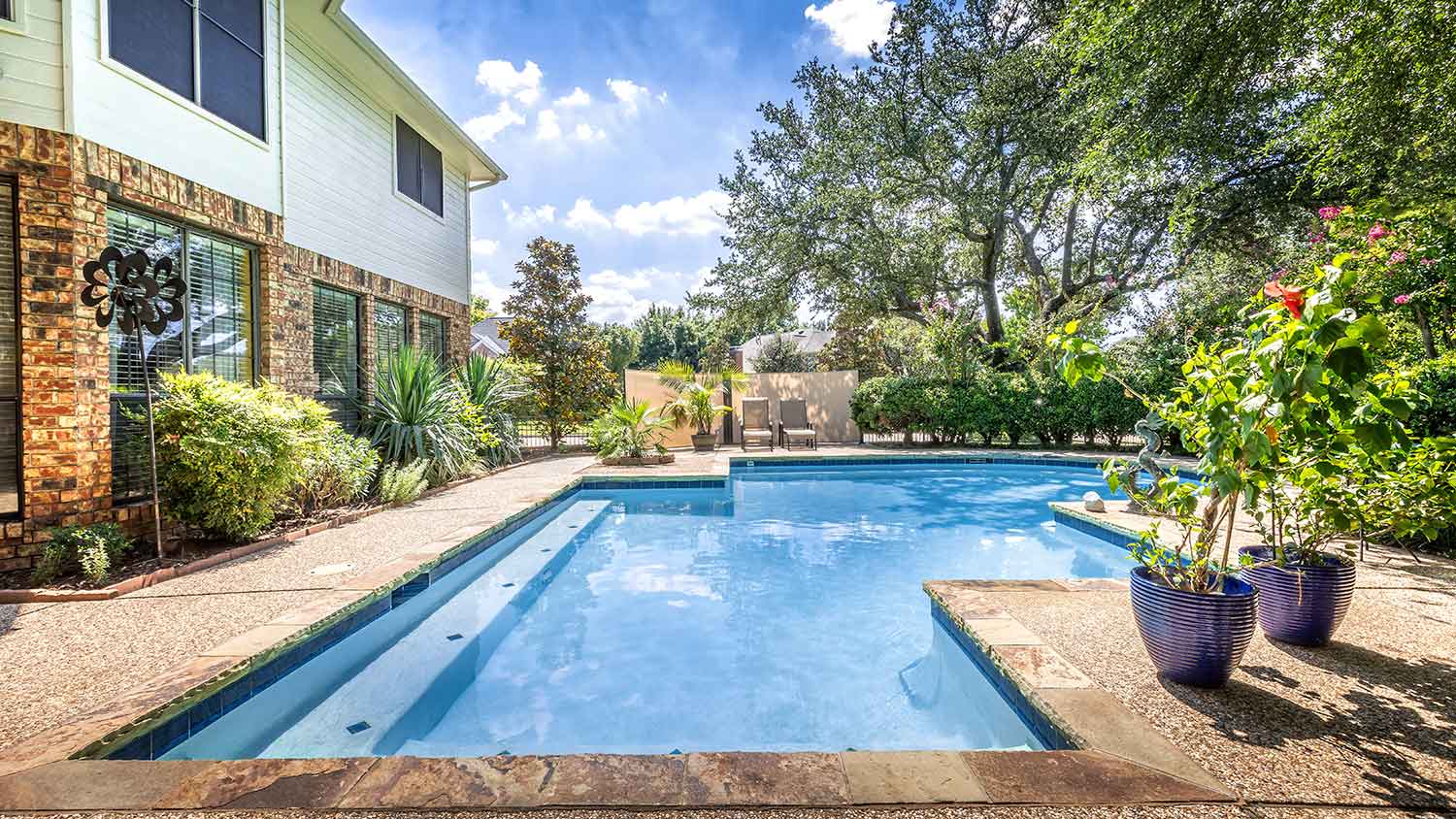
A traditional inground swimming pool is larger than a swim spa, usually ranging from 20 to 40 feet long and 10 to 20 feet wide, and most have graduated depths, generally from 3 to 10 feet deep. Pools are available in a vast array of designs and shapes, and are customizable to fit your yard and style.
| Pros | Cons |
|---|---|
| Ideal for entertaining | Higher installation cost |
| May add value to your home | Requires extensive maintenance |
| Aesthetic advantages | Expensive energy costs |
Best for:
Active families
Properties with large yards
Homeowners who love to entertain
A pool is a backyard showstopper, and is ideal for summer get-togethers and family pool parties. Because pools are so customizable, your pool is sure to fit your landscape and aesthetics, and allows you to make more use of your yard. In some areas, pools can add to the value of your property and may be a desired feature for prospective homebuyers.
A pool is a big investment, from installation to maintenance and insurance costs. The average cost of installing an inground pool averages between $40,000 and $100,000—and that doesn’t include chemicals, electricity, fencing, insurance, and other associated costs.
Polls will cost you more than just money, too. Regular maintenance takes a lot of time (or the cost of hiring a pool service to maintain it for you). Pool owners have to devote significant effort to keep the pool in top condition and running properly.
Swim spas usually run about half the price to install as inground pools because of their smaller size and less extensive pump and filtration systems. You’ll also save on the cost of decking and fencing as compared to a traditional pool.
Most swim spas come pre-fabricated, so installation is significantly easier than digging out and constructing an inground pool. Swim spas take less time to install and require less disruption of your yard.
Because of their smaller size, swim spas require far less maintenance than pools. They use fewer chemicals, the cost of a cover is lower, and you’ll spend less on energy to keep the water filtered. It also costs much less to fill a swim spa due to its smaller volume.
Most pool owners will admit that they spend a lot of time maintaining their pools. A swim spa’s efficient filtration system means you’ll spend less time skimming and adding chemicals, and replacement parts and repairs are less expensive than those for pools. A local hot tub or spa repair service will be able to maintain and repair your swim spa for less compared to expensive pool repair costs.
Swim spas are great for swimmers looking to get a workout in, but for family use, you can’t beat a pool. The larger size and calmer water make a pool a great place for families and friends to gather when compared to the limited size and strong currents of a swim spa.
In many areas, pools can be a great selling point for prospective buyers. In warmer climates, a pool may be a non-negotiable for buyers, and a swim spa may limit the appeal of a property for anyone looking to entertain. Although pools don’t always increase the value of a home enough to recoup the cost of installation, they may be an appealing feature when it comes time to sell.
From average costs to expert advice, get all the answers you need to get your job done.

Wondering about hot tub cover costs? Learn what impacts pricing, compare materials, and discover ways to save on your next hot tub cover purchase.

We could all use some relaxation, but we don’t always have the budget. This guide will show you how much an in-ground hot tub costs—no matter the build.
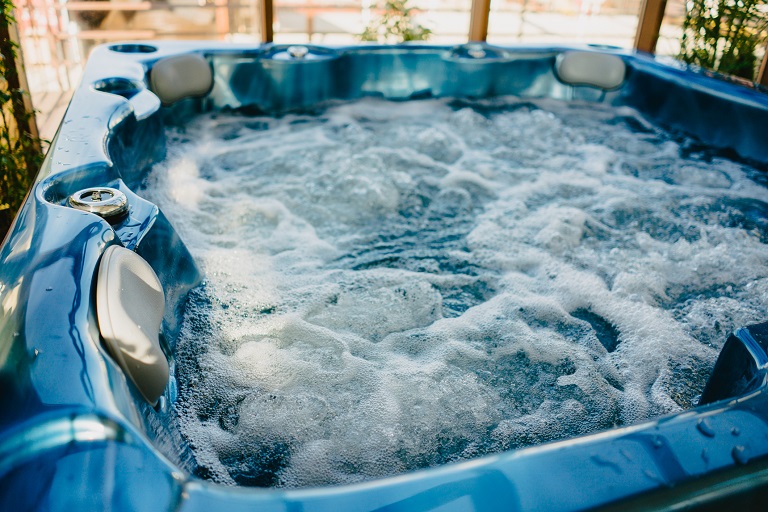
Wondering how much it costs to run a hot tub? Discover average monthly and yearly costs, key factors, and tips to keep your hot tub expenses in check.

If you’re considering adding a pool to your property, you might be wondering what time of year you should buy it. Read on to see why the end of the swimming season in most climates is actually the best time to make your pool purchase.

Knowing how to fix a crack in a hot tub can save you a lot of money and lengthen the life of your hot tub. Here is what to expect.

There are many types of hot tub cover lifters. Investing in one is good for both your hot tub and your back, and will increase the hours of enjoyment.